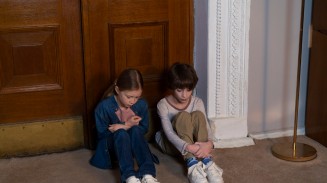With cases over affirmative action, voting rights and other contentious issues waiting in the wings, the U.S. Supreme Court on Monday opened its new term as the nine justices took to the bench for the first time since a flurry of high-profile rulings in June.
The term's first oral argument was a low-key liability case that contrasted with the court's sharply divided June rulings legalizing same-sex marriage nationwide and rejecting a challenge to President Barack Obama's healthcare law.
The justices rejected hundreds of appeals that had piled up over the summer including the Justice Department's bid to restore the insider trading convictions of two hedge fund managers. A top federal prosecutor said the court's action may allow some executives who engage in insider trading to go unpunished.
The justices declined to hear a challenge brought by a California city to Major League Baseball's longstanding exemption from antitrust laws.
The court also said wealthy Washington lawyers will no longer be allowed to pay people called "line standers" to wait in line for them ahead of the court's big oral arguments.
The justices will add more cases in coming months to be decided by the end of June. The potential blockbuster case of the term is a challenge by abortion providers to Republican-backed abortion restrictions in Texas.
The justices already agreed to hear a conservative challenge to affirmative action - racial preferences - in university admissions and conservative challenges over how to draw electoral district boundaries in Texas and Arizona that could add clout to Republican-leaning voters.
They will also rule on whether to reduce public sector union influence in a case involving California teachers.
At issue in the first case before the justices on Monday was whether a California woman can sue Austria's national railroad in U.S. courts for a 2007 injury she suffered in Innsbruck. While boarding a train to Prague, Carol Sachs fell between the tracks. Her legs were crushed by the train and had to be amputated.
Several justices expressed skepticism about the notion Sachs should be able to sue simply because she purchased her ticket online via a U.S. travel company.
"That's all that happened in the United States," said Justice Ruth Bader Ginsburg. "All the relevant conduct ... occurred abroad."
Sachs has received backing from an unusual source: hedge fund NML Capital. NML, a holder of Argentine bonds, has turned to U.S. courts seeking repayment in full following Argentina's $100 billion default in 2002.
Sach's case raises issues of "exceptional importance to sovereign debt enforcement litigation," NML said in court papers.
Copyright Thomson Reuters. All rights reserved.
Get the Most Popular Lawyerherald Stories in a Weekly Newsletter





